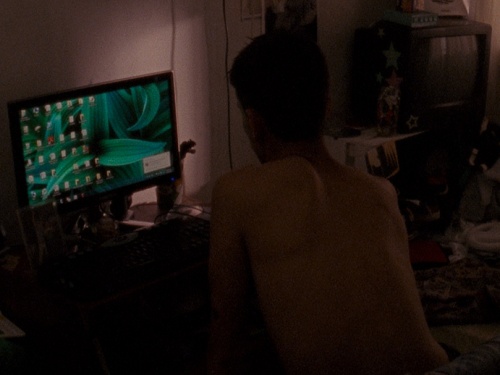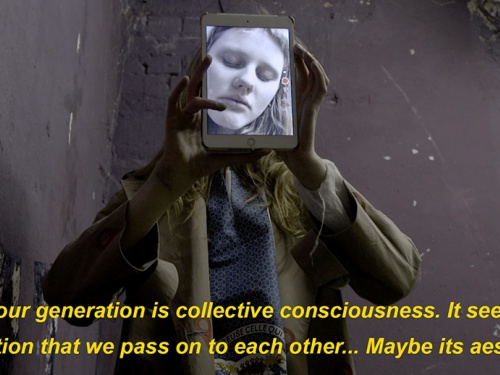The Dardenne Brothers: The Aesthetics of Compassion
Ahead of our Dardenne Brothers Retrospective, Cinema and Film Programme Manager Nico Marzano reflects on the filmmakers' backgrounds, the social realism of their films and their commitment to the political power of cinema.
By the time Jean-Pierre and Luc Dardenne earned their first Palme D’Or in 1999 they had been honing their craft since the mid-1970s, writing, producing and directing over 60 documentaries. After turning their attention to narrative films in the late 1980s, by the late 1990s they had started to create magnificent sociopolitical observations that culminated in the creation of seven feature films between 1996 and 2014. It is these unique works that the ICA will feature in The Dardenne Brothers Retrospective.
The retrospective is arranged chronologically to take our audience on a cinematic journey through the work of the frères Dardenne. The first screening will be La Promesse (The Promise, 1996), a harrowing rites-of-passage story partly inspired by Dostoyevsky’s The Brothers Karamazov. Next we will have the chance to rediscover Rosetta (1999), in which an obsessive and merciless camera is focused on a girl trying to flee from poverty. Next Le Fils (The Son, 2002) is an unsettling account of a carpentry teacher’s relationship with the teenager responsible for the death of his son. L'Enfant (The Child, 2005) focuses on a son, sold for the survival of a young couple.
Following this is Le Silence de Lorna (Lorna's Silence, 2008), an austere and astute drama set amid the transient underclass of the Belgian city of Liege. Le Gamin au Velo (The Kid with a Bike, 2011) features an 11-year-old tearaway starting to make sense of the conflict around him in this subtle and touching drama. Closing the retrospective will be Deux Jours, Une Nuit (Two Days, One Night), an urgent, humanist drama in which a working-class woman (Marion Cotillard) gives her formidable all as Sandra, a woman on the verge of losing her job.
An aspect common to all these works is their use of gritty landscapes to frame the day-to-day lives of working class Belgians living on the outskirts of society. The Dardenne camera indulges in tenement owners, carpenters and petty thieves. Viewed through an unforgiving, naturalistic frame, their work has garnered the highest honours in the last 15 years, earning them a place in the pantheon of filmmakers who have twice won Cannes’ Palme d’Or – once for Rosetta and once for L’Enfant.
Jean-Pierre and Luc Dardenne were raised in Seraing, a big industrial city in the Wallonian region of Belgium, in the province of Liège. The geographical space where the Dardennes were brought up and educated had huge impact on their filmmaking. They have sometimes compared Seraing to Detroit, and Seraing/Detroit becomes a constant source for their stories, in which their characters are often dejected and looking for new hope. Their cinema celebrates emotional, social and civil encounters based on personal and shared aims. The ethical force of the Dardenne films also corresponds to their ongoing political commitment, striving for change in an establishment which too often loses sight of individual needs. For the Dardennes, cinema is a tool for improving society and mankind.
The filming process also reflects the dynamic between the two brothers, both on set and in their lives. While one brother is on set, the other rests in front of the video monitor to change and swap the positioning after each shot. They stress that they constantly need the point of view of the other in order to progress and further develop their characters. In Dardenne films we often don’t find room for any music or soundtrack. The construction of their stories is often based on sounds, not only dialogues. The films' rhythm and pace are based on the sounds that we can hear on the set: the noise of the bodies moving, the breathing of the characters, the simple sound of touching an object.
The Dardennes’ works are rooted in the ethics of compassion. The suburbs or industrial areas where their works are usually set do not form part of a cold and distant exercise of observation, but rather a compassionate participation that continues developing with every single shot. The camera is at the service of the protagonists, often teenagers who are becoming aware of their identity, rebelling against their condition, in repentance and in recognition of others. The style becomes, as it should always be, functional. Form becomes almost irrelevant. Every single shot, every single camera angle is needed. Nothing superfluous is allowed in the cinema of the frères Dardennes, in a framework of formal rigour and sobriety. ■
The Dardenne Brothers Retrospective runs 24 April - 3 May.
This article is posted in: Articles, Blog, Film
Tagged with: The Dardenne Brothers, Dardennes, Nico Marzano, Social Realism, The Promise, The Child, The Silence of Lorna, Rosetta, Two Days One Night, Kid on a Bike, Marion Cotillard, Film, Cinema







